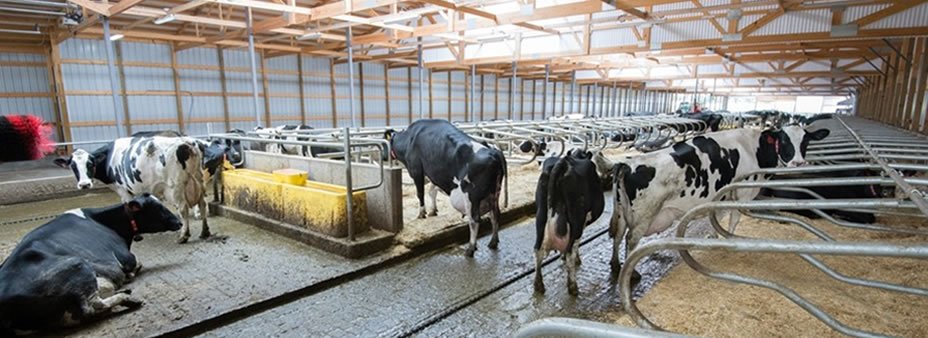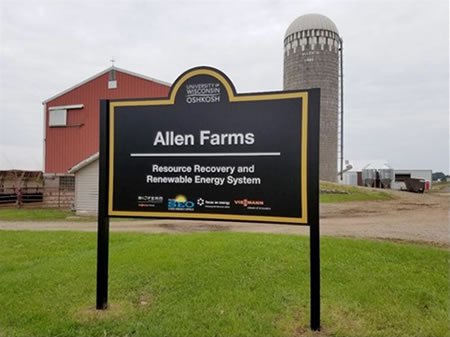Meet An Anaerobic Digester Operator: Allen Farms

Let's Meet...
Brian Langolf
Director of Biogas Systems and Research Development
University of Wisconsin-Oshkosh
Oshkosh, Wisconsin
Anaerobic Digester Type
Mixed Plug Flow
Operating Since
April 2015
Population Feeding Digester
Approximately 130 cows
"Anaerobic digestion can be a great tool for farms of all sizes to consider to help improve manure management practices. When looked at holistically, they can provide cost-effective and environmentally friendly alternatives to traditional manure management practices."
– Brian Langolf, University of Wisconsin-Oshkosh
Why did the University of Wisconsin-Oshkosh collaborate with Allen Farms to build a digester?
The University is committed to developing innovative state-of-the-art tools and training equipment to offer our students hands on experience in a living, learning laboratory. The digester also further advances the University’s sustainability goals set by the campus sustainability plan and helps develop technology and solutions that can hopefully be implemented at other small farms in Wisconsin and the greater U.S. to benefit the local community.
How long did it take to realize your AD system (from initial concept to steady operations)?
Three years.
Is the digester meeting your needs?
Yes, things are running very well and the farmer is very happy with the benefits the digester provides to his farm (e.g., benefits such as better manure management, odor reduction, and digestate stabilization).
What issues have you experienced with the system?
Numerous learning opportunities were encountered along the way: winter operation and necessary system design, feedstock preprocessing requirements for equipment, and the impact of chemicals from the milking system on the AD process.
What are your greatest challenges?
The biggest challenge is finding cost-effective, local service support for the combined heat and power (CHP) system and operating the digester during harsh periods of Wisconsin winters.
Other challenges, similar to many digester operations in Wisconsin, are around costs to operate vs. what value can be realized. Barriers at the state and local level exist for being able to cost effectively develop behind the meter options, net metering, and pipeline injection, and currently, no real monetary value is assigned to the environmental benefits anaerobic digestion can provide to the Wisconsin agriculture industry
What are the greatest benefits?
For Allen Farms, our collaboration has assisted them with the implementation of a better manure management tool. For the University, the digester project provides our students an innovative educational opportunity.
What is your favorite part about having an AD system?
The after-hours calls. Seriously though, working with the students and various outside groups who have never heard of or worked with AD to help them understand how it works and the numerous benefits. I think AD is an underutilized technology that has much more potential both on its own and in combination with other technologies to develop sustainable solutions to many of today’s problems.
Do you have any advice for others?
Do your due diligence before building a system.

Learn more
Read a case study (pdf) developed by the project’s system designer BIOFermTM.
Watch the following interview with Dave Allen from Allen Farms:

